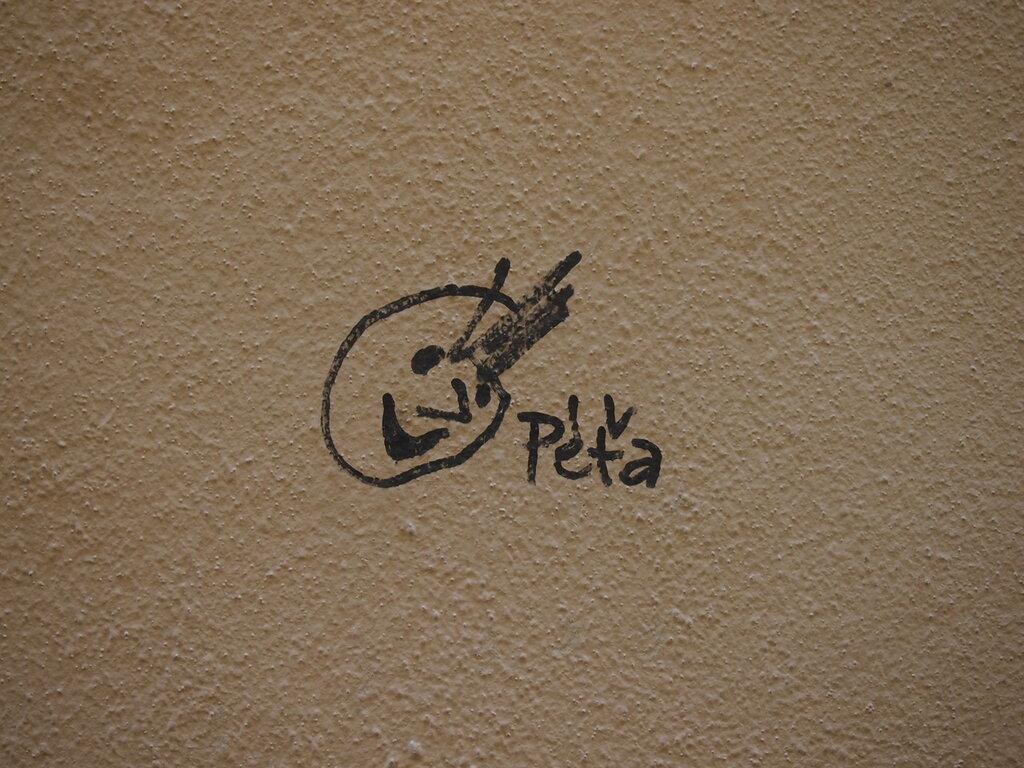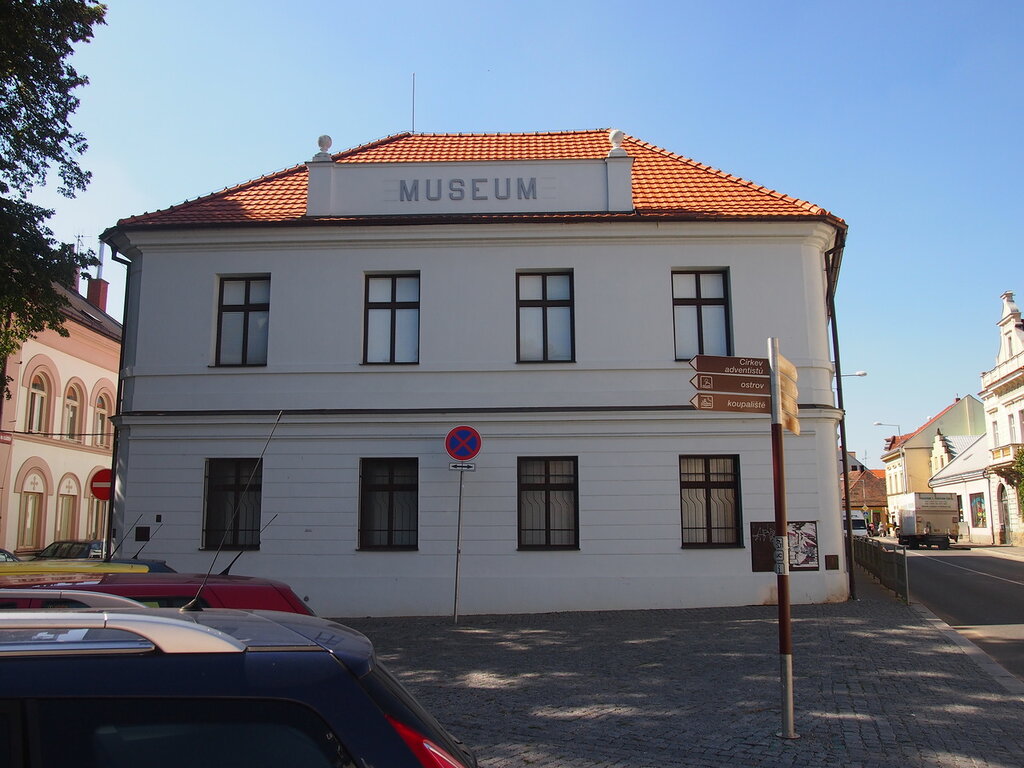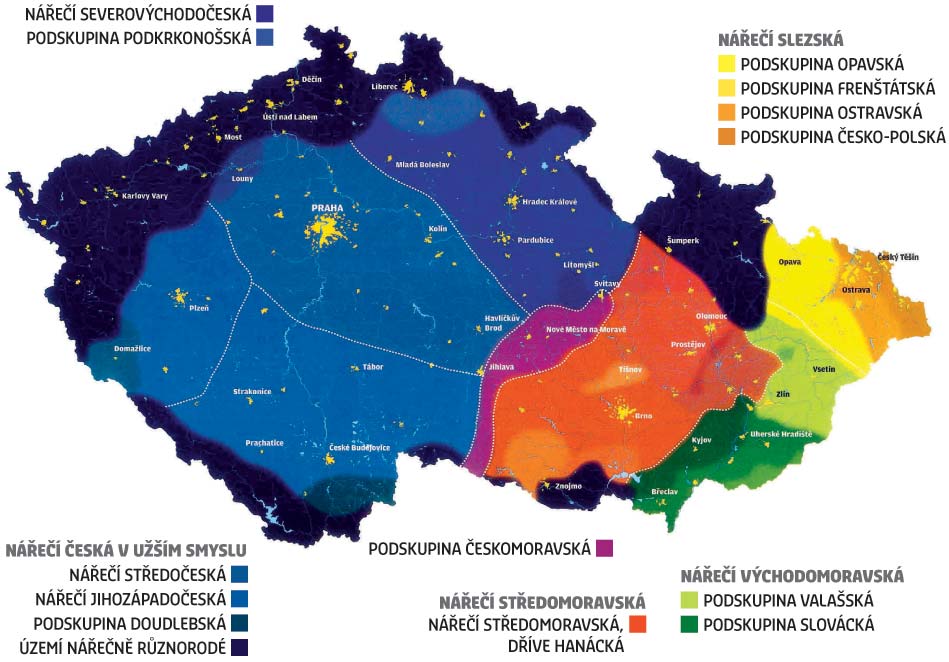
We've been learning Czech for half a year already and achieved certain successes 🙃
Today I'd like to share my impressions about whether Czech is easy to learn?
For those interested - I studied it in Poděbrady: first semester, beginning of second semester.
I was prompted to discuss this question by this: it's believed that Czech is very easy to learn for students from former CIS countries.
This myth builds the entire business plan of the main part of Russian businessmen in Czech Republic - "come, it's so easy here that even we can teach you".
I've been doing languages for a long time: I studied at a school with in-depth English study, even won a couple of Olympiads, studied French and German courses for a couple years (and still remember them a bit), at institute I learned Spanish - in general, you can trust me ❤
Contents:
Czech - is it easy for Russian/Ukrainian?
Will I learn Czech quickly?
Can you learn Czech at home?
Do I need the language in my profession?
False friends of the translator
Differences in pronunciation and grammar
Dialects
Culture as part of language
First I'd like to tell about a couple of myths, where they come from and confirm/refute them.
Myth one. Czech is very easy, like Russian, only with Latin letters
Czech Republic is a quite attractive country for tourists. Of course, the main flow of tourists goes to Prague. Its center is especially popular.
Entrepreneurs are not fools, so they provide their services in different languages. Russian, English - including.
An unprepared person will make their first conclusions here, hearing Russian speech, seeing many signs. In reality - this is still a purely tourist place, and making conclusions here is stupid.
Another irritant was beer advertising, which told about the similarity of such words as "pivo", "ulice", "most". In general, a successful move for a marketer - a burden for a linguist 🙃 Remember that one?

Those who were lucky enough to get outside Prague also won't experience huge problems. Here, for example, what you can see in Poděbrady - words "museum", "církev", "ostrov" (see the sign on the right). Russian will figure it out without problems, and if something is unclear - you can guess by the pictogram.
From this you can also conclude that Czech is a very understandable language, however, this is not so. Signs are made to attract the maximum number of people, so they're written as simply as possible. In such cases, international variants of words are often used.
In reality, the lexicon hidden from tourist eyes is not as easy as it might seem. For those who want to try their strength in understanding Czech texts on the fly - you can try reading news at http://ihned.cz/ - unlikely it will be very easy.
Speaking about what language Czech is similar to - it's similar only to Slovak (knowing Czech you'll 100% understand a Slovak), partially to Polish. With others - only similarity, which doesn't always help, and more often - only interferes.
Myth two. You can learn Czech quickly
This myth is born mainly among those who already tried to start learning this language. And here it's hard to argue - the first period of study is given to Russian-speaking students quite easily - in the first month of our study almost everyone had excellent grades.
Then very often everything falls into place - grammar becomes difficult. The main problem (for me personally) - frequent illogicality.
If some rule works in one case - it's not a fact that in another you can apply it. However, this feature is inherent in many Slavic languages, Russian - including.
Proof of my words are also the results of tests at the end of the year. A rare student wrote the test more than 90%. The main mass of students knows the language at "B" level, i.e. about 80%, and this in years when training was offline.
And as for admission to top universities in Prague - here I'm just silent.
Myth three. You can learn Czech outside Czech Republic
You can argue about this question for hours, but I'll say one thing: you can learn written language, oral - no.
It's exactly by being in the Czech environment that you can learn to pronounce sounds correctly, construct sentences correctly. A person who hears foreign speech every day from different people will be much more successful in the language than one who hears only one teacher\audio recording.
And this is not to mention that among Czechs there are also illiterate people (you also need to somehow understand them), people of different ages (grandmothers of the world don't speak the language that young people speak), foreigners (understanding the same Vietnamese is a special treat). Also in Czech Republic there are many dialects, phraseological units, learning them remotely is almost unrealistic.
Before learning the language you need to make the right choice. If you need it only to read a couple of books - you can not bother and study the language at home for a couple of months. If the language is required for daily use - you need to go and learn on the spot.
Take seriously the choice of place to study the language!
Myth four. I'm a techie (doctor/lawyer/athlete/idiot), I won't need Czech in my profession
(If you want to know if a Czech student can work - can!).
Here everything is also quite controversial. First, working in Czech Republic without knowing Czech - is at least strange.
Second, you need to be very lucky to get a job in a foreign country just like that.
Third, you need to study, and here without language there's nowhere - foreign students have equal rights with Czech ones (and, consequently, equal obligations), which means - studies will be in Czech.
And finally, talking to someone you'll also want sooner or later.
One of the subspecies of this myth is the myth that knowledge of English will be enough here. I confess, I thought so too. It seemed to me that since I know the language - everyone knows. And this is - Europe, civilization. Oh, how wrong I was.
English is mainly known by educated people, in everyday tasks they're unlikely to help you: in stores, banks, at the post office everything is in Czech. And if suddenly a person knows English - this is also unlikely to help you. Usually, they learned it at school and without practice forgot, so you won't be able to shine with knowledge.
It so happened that I'm now working at AVG (yes, the antivirus one). The working language is English, with colleagues you can speak Czech. What do you think, are there many such techies here who boasted that language is just a tool? In two words: don't know the language - good, go work where you don't need to communicate with people.
I told about myths. Now it's worth telling about Czech language and looking at it with our Russian-speaking view.
Czech belongs to the Indo-European family (like Hindi, Farsi, Spanish - what, think they're all similar?).
Czech belongs to the Slavic group of languages (i.e. it still has something in common with Russian), and more precisely - to West Slavic (together with Slovak and Polish, which really have a lot in common with Czech).
Czechs write in Latin letters with diacritics. There are 3 diacritical marks: čárka (á), háček (č) and kroužek (ů). In the Czech alphabet there are 42 letters, starting to understand Czech writing is very easy.
Now - about the difficulties that, most likely, any Russian-speaking student will face.
False friends of the translator
This phenomenon has been known for a long time. For example, the word "město" (read as mnesto) - translates as city. Everyone will definitely encounter the word "pozor" (read as pozor) - this is a call to be more attentive. In reality - it occurs very often, so - shame!
Someone even made a dictionary of such words.
Differences in pronunciation
First, stress in Czech always falls on the first syllable. Russian-speaking students rarely follow this, in speech it's noticeable.
Second - in Czech the length of vowels is important. I.e. depending on the length of vowels, meaning can change. Tracking this in speech is extremely difficult.
Third - there's the letter ř. It's practically unpronounceablе for a Russian-speaking student, pronounced approximately like "rzh", only as one sound. And as soon as you learn to pronounce it - you want to stick it everywhere, even where you shouldn't. In Russian-language textbooks this letter is taught as "rzh" and "rsh" - it sounds very funny from unfortunate students - "kalendaRZH", "RZHikat" (Czech říkat - to say).
And in general, it should be noted - almost every letter is read differently than in Russian. Pronunciation is similar, but not identical.
Differences in grammar
Very often it happens that a word is conjugated/declined completely differently than in Russian. Accordingly, it's difficult to follow your speech, you want to say a different ending, different construction. Cured - by experience and memorization.
I'll give a specific example - the reflexive particle "se" (trans. "-sya", e.g. to wash-SYA) is written separately from the word and can even stand before it. Or, for example, "ne" with verbs is written together, always.
A separate point worth noting is that Czech is in places extremely illogical. I.e. direct comprehensive rules are few. Czechs themselves at school often learn spelling by heart, which is not very good. All this is because Czech was displaced from the country for almost 400 years by German, was transmitted only orally. What we have now is essentially a hastily restored language. On the other hand, they're trying to fight this, quite logical edits are often introduced. Therefore, in the near future, I think, everything will be much easier to learn.
Czech dialects
In Czech - many dialects. I.e. depending on territory, writing and pronunciation of words changes. Sometimes it even reaches absurdity

As you can see in the picture - there are many dialects. Learning all is not worth it, with experience of living in a particular place it comes by itself. In Russia - the situation is different, in the Far East you'll most likely be understood as well as in Moscow (if they still speak Russian in Moscow 🙃).
On the other hand, a unified standard still exists - it's exactly what they learn in schools, universities, it's used in official documents.
Ignorance of Czech realities and history
From my experience I'll say that knowledge of these things is very important for learning the language. Sometimes understanding why some word is called so and not otherwise is helped only by history. And knowledge of realities of recent years is generally mandatory - to understand peers.
So, let's sum up. Czech is difficult. Only Slovaks understand it relatively easily, others need to work on themselves.
- knowledge of Russian helps not always, and even more often confuses
- Knowledge of English - helps very little
- You should study the language (any) in the country where it's spoken. However, if you need it not for practical application, but as a hobby - you can do it at home
- don't judge Czech Republic and Czech language by the center of Prague - there's a lot of interesting things around, take at least Telč